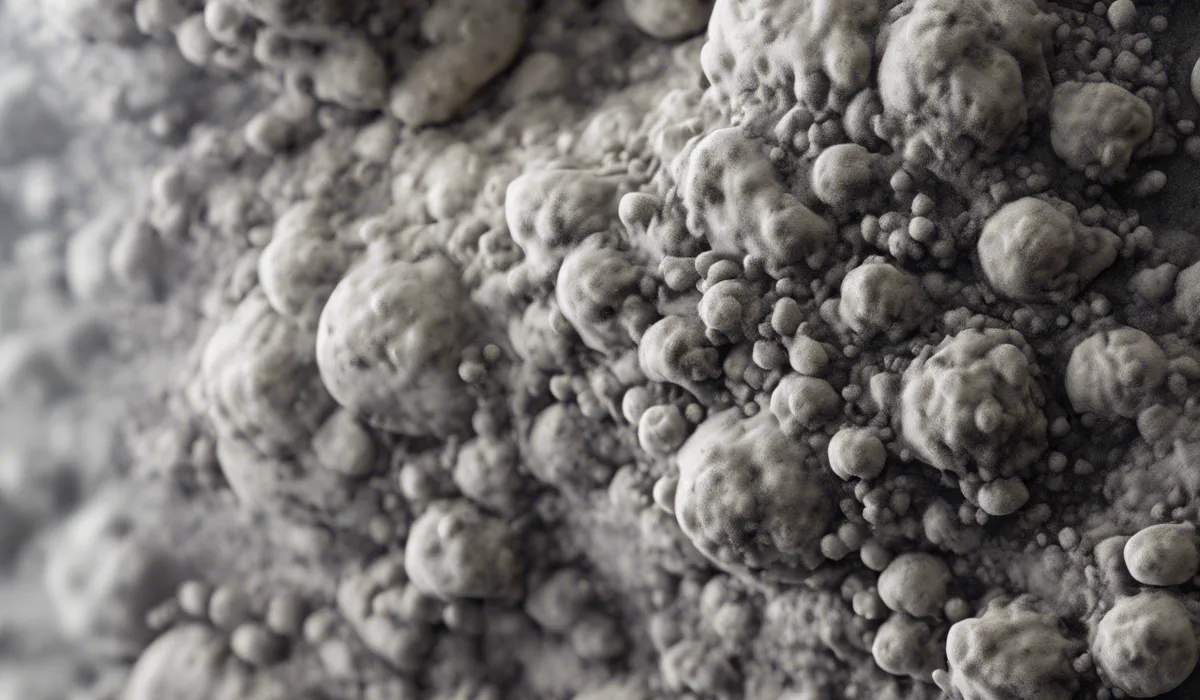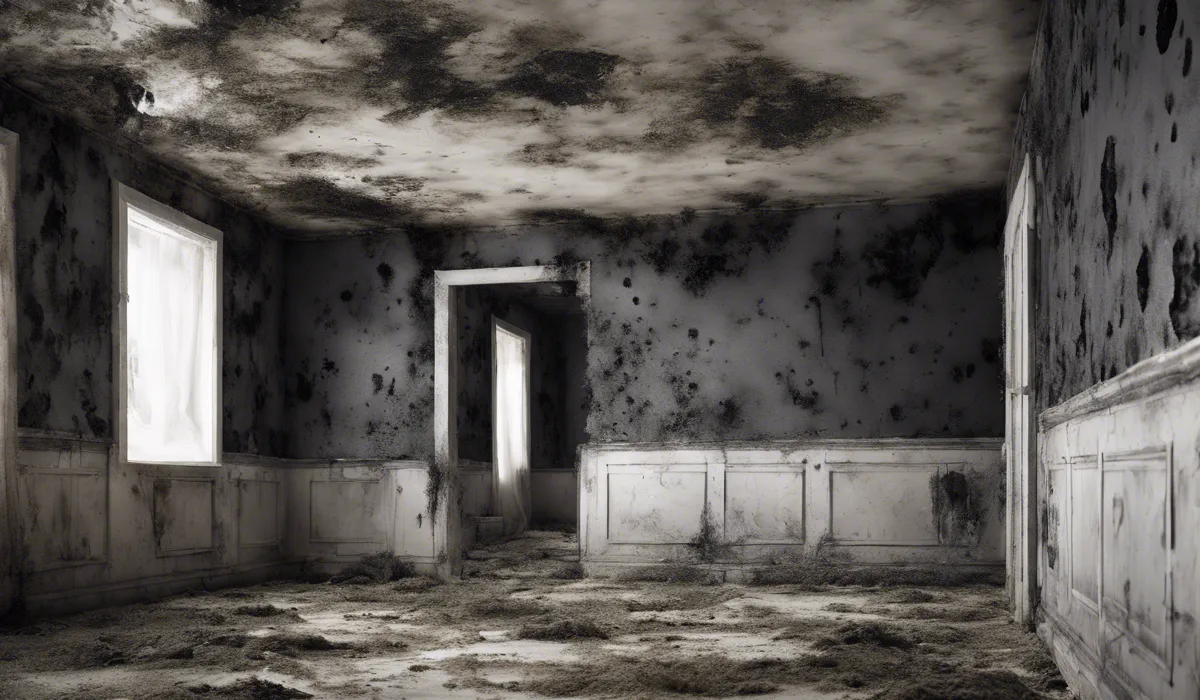There is no conclusive evidence that black mold causes cancer. While some molds produce mycotoxins that can be harmful to health, cancer risk from mold exposure is not well-established. However, it can lead to other health issues, particularly in sensitive individuals.
Understanding Black Mold and Its Health Implications

Description of Black Mold (Stachybotrys chartarum)
Black mold, scientifically known as Stachybotrys chartarum, is a type of fungus that thrives in moist environments. It appears as dark green or black and feels slimy to touch.
This mold releases spores into the air, which can be inhaled by people and pets. It is essential to take black mold seriously because it can impact health.
Common Places Where Black Mold is Found
Black mold tends to grow in areas that are prone to water damage or have high humidity.
This often includes basements, bathrooms, kitchens, and around leaks in roofs or windows. It can also hide behind walls or under carpets, making it tricky to spot.
Identification of Black Mold in Homes or Buildings
To identify black mold, look for discolored patches on walls or ceilings that are black or green.
A musty odor is also a sign that mold might be present. If you suspect mold growth, it is best to have a professional test the area to confirm its presence and type.
General Health Risks Associated with Black Mold Exposure
Exposure to black mold can lead to various health issues. These can range from allergic reactions to respiratory problems.
It is crucial to address mold growth promptly to minimize these risks.
Symptoms of Black Mold Exposure in Humans
People exposed to black mold may experience symptoms such as coughing, sneezing, itchy eyes, or a runny nose.
Some might have skin rashes or feel tired without reason. It’s important to listen to your body and notice any unusual symptoms.
Vulnerable Populations and Heightened Health Risks
Certain groups, like children, the elderly, and those with weakened immune systems or respiratory conditions, may be more sensitive to mold.
For these individuals, exposure to black mold can lead to more severe health problems.
The Connection between Mold Exposure and Cancer

Overview of Scientific Research on Mold and Carcinogenicity
Research investigating the link between mold exposure and cancer is ongoing. While some studies have looked at potential connections, conclusive evidence is still lacking.
It is a complex area that requires more investigation.
Explanation of Mycotoxins Produced by Molds, Including Black Mold
Molds like black mold can produce toxic substances called mycotoxins. These toxins can be harmful when ingested, inhaled, or touched.
Understanding these substances is critical in assessing the health risks of mold exposure.
Specific Mycotoxins from Black Mold and Their Known Health Effects
Black mold produces mycotoxins such as trichothecenes and atra toxins. These can disrupt the immune system and have been associated with various health issues.
It is essential to minimize exposure to these toxins.
Current Understanding of the Link between Mycotoxins and Cancer
While some mycotoxins have been classified as potential carcinogens, the direct link to cancer is still not clear.
Current understanding suggests that more evidence is needed to determine the cancer risk associated with mycotoxins from black mold.
Agencies’ Positions on Mold and Cancer Risk (EPA, WHO, IARC, etc.)
Organizations like the EPA, WHO, and IARC have not established a definitive connection between mold exposure and cancer.
They continue to research and monitor the potential risks to ensure public health safety.
Studies on Long-Term Exposure to Mold and Cancer Incidence
Long-term studies are needed to fully understand the effects of chronic mold exposure. These studies will help determine if there is a higher incidence of cancer among those exposed to mold over long periods.
Mitigation and Prevention Strategies
Importance of Preventing Mold Growth and Exposure
Preventing mold growth is key to maintaining a healthy living environment. By addressing mold issues, you can protect your family from potential health risks.
Steps for Identifying and Addressing Water Damage and Humidity
Regularly check for signs of water damage or excessive humidity in your home. Fix leaks immediately and use dehumidifiers if necessary to keep humidity levels low.
Best Practices for Mold Remediation
If you discover mold, it may be best to contact professionals who specialize in mold remediation. They can safely remove the mold and help prevent future growth.
Preventive Measures to Keep Homes Mold-Free
Simple steps such as maintaining good ventilation, cleaning regularly, and keeping areas dry can help prevent mold growth in your home.
Health and Safety Guidelines
Living in areas affected by mold requires caution. Follow health guidelines, such as using protective gear when cleaning mold and seeking professional help for removal.
When to Seek Medical Advice for Mold-Related Health Concerns?
If you or a family member experience symptoms that might be related to mold exposure, it is important to seek medical advice.
A healthcare provider can help diagnose and treat any mold-related health issues.
FAQs About Black Mold and Cancer Risk
Can black mold exposure lead to cancer?
There is no conclusive evidence that exposure to black mold causes cancer. The link between mold exposure and cancer risk is not well-established.
Are the mycotoxins produced by black mold carcinogenic?
Some molds produce mycotoxins that can be harmful to health, but there is no definitive proof that the mycotoxins from black mold are carcinogenic.
What health issues can black mold exposure cause?
Black mold exposure can lead to respiratory problems, allergic reactions, and other health issues, especially in sensitive individuals.
Is it safe to live in a house with black mold?
Living in a house with black mold is not recommended, as it can cause health problems. It is advisable to remove the mold and address the source of moisture that allowed it to grow.
Should I be worried about cancer if I’ve been exposed to black mold?
While cancer risk from black mold exposure is not well-established, it’s important to address any mold issues in your living environment and consult a healthcare provider if you have health concerns.
Final Thoughts
While black mold is known to produce potentially harmful mycotoxins, the link between mold exposure and cancer is not well-established.
The evidence does not conclusively show that black mold causes cancer. However, exposure to mold can lead to a variety of other health issues, particularly affecting those with sensitivities.
